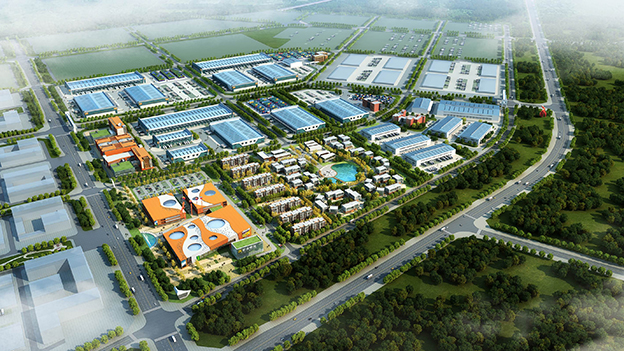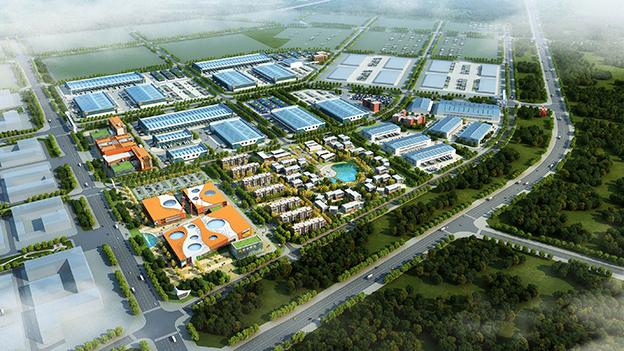
BEIJING, Feb.5 (Xinhua) -- In 2017, the construction of China's overseas economic and trade cooperation zones had achieved remarkable results. However, being at different locations and development stages, the zones are generally faced with a long period of return on investment, and some of them can still hardly achieve balance of payment even after years’ operation.
“Whether the project itself is commercially feasible and sustainable” is the biggest challenge overseas cooperation zones are facing, an industry insider says.
-- Opportunities and risks run parallel
The latest data from the Ministry of Commerce shows that by the end of 2017, 99 overseas economic and trade cooperation zones have been built by Chinese enterprises in 44 countries in total, involving accumulated investment of 30.7 billion U.S. dollars, and these zones had attracted 4,364 enterprises, paid 2.42 billion U.S. dollars of tax and fees to the host countries, and created 258,000 jobs for local people.
Asia is one of the most preferred investment destinations. Thailand has become the ideal country for investment thanks to its humanistic environment similar to China, superior investment environment as well as the rapid and stable economic growth; Cambodia prides itself on sound investment environment, huge space for development and low labor cost; Indonesia offers relatively relaxed investment environment, bears the lowest national debt burden among the major ASEAN countries and attaches high attention to developing agricultural economy.
Meanwhile, Africa has also become another hot area for development of the zones under the industrialization cooperation plan.
Although the overseas economic and trade cooperation zones have developed into a new stage, there are still many challenges and difficulties. Political instability, poor industrial support, backward infrastructure, high exchange rate risk, insufficient legal protection and terrorist threat are the risks confronting many overseas zones, according to Luo Yuze, an analyst of the Research Department of Foreign Economic Relations of State Council’s Development and Research Center.
-- Long time period for investment return
The cooperation zones are generally faced with a long period of return on investment, and some of them can still hardly achieve balance of payment even after years of operation.
The development of industrial parks is a process of short-term investment, medium-term equilibrium and long-term profitability. For the investors of the cooperation zones in underdeveloped countries, weak infrastructure is a common concern, which increases the enterprises’ input and makes the payback period longer.
Huang Meibo, a professor at the School of Economics of Xiamen University, said the cooperative zones faced some serious problems constraining their sustainable development in the process of construction and business soliciting, explaining that those problems include host countries’ inadequate support on the cooperation zones, the vague function positioning, inconspicuous location advantage, hindering financing problem, shortage of international business management talents and insufficient publicity and promotion.
It is understood that overseas economic and trade cooperation zones can obtain some financial aid from the Chinese government when meeting certain assessment indicators.
-- Financing bottleneck
Sustainable financing remains a hard issue puzzling many zone development enterprises
In terms of financing, the current main channel is still through bank loans, but China’s banks have a small number of branches abroad and limited capacity, while the banks’ global credit system does not support the parent company’s guarantees and mortgages for offshore subsidiaries, so the overseas financing needs of the cooperation zones often can’t be met; besides, the banks in the host countries are not well developed and it is difficult for Chinese companies to get loan support from local banks as well, said Huang Meibo.
Huang believes that to help the overseas zones deal with the financing problem, Chinese banks need to improve the authority of domestic banks to lend abroad and the overseas handling ability and simplify procedures of the branches. She also pointed out that the developers of the cooperation zones shall also seize the policy opportunities to seek new financing methods, such as overseas loan under overseas guarantee, domestic loan under overseas guarantee, and establishing overseas cooperation zone equity guidance fund.
Luo Yuze believes that in order to solve the problem of sustainable financing for the overseas zones, on the one hand, the site selection and design of the zones should be rational and based on market-oriented decision with commercial feasibility and sustainability; on the other hand, China should push ahead the opening of capital market as soon as possible, encourage the development of offshore finance, enhance financial institutions’ overseas network building, strengthen international cooperation and widen the business scope of financial institutions’ overseas operations, while improving China’s financial supervision and risk prevention capacity by taking multiple measures concurrently.
(Edited by Yang Qi, kateqiyang@xinhua.org)




 A single purchase
A single purchase









